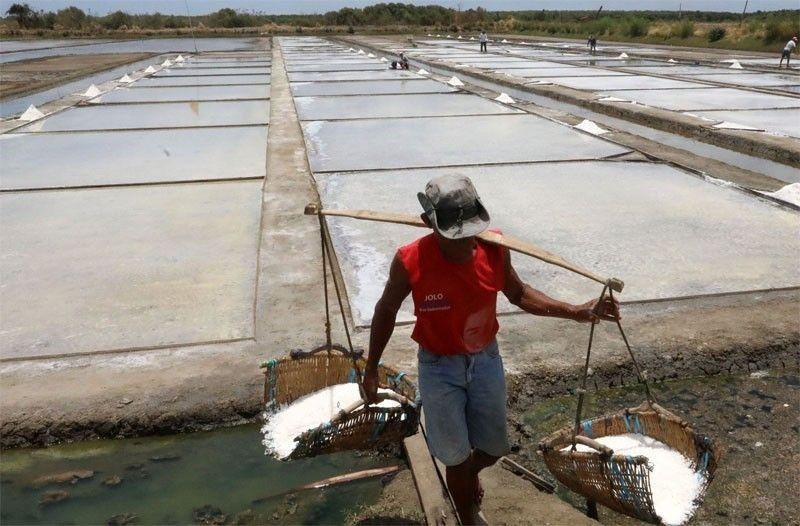Regulations needed to ensure sustainable salt industry expansion — group

MANILA, Philippines — The newly-signed Philippine Salt Industry Development Act needs thorough regulation to ensure a balance between salt production, aquaculture, and environmental sustainability, a group said on Wednesday.
President Ferdinand Marcos Jr. signed into law the measure that seeks to revive a sector considered "dying" by equipping salt farmers with appropriate technology as well as financial, production, and marketing support.
However, environmental organization Wetlands International Philippines warned that the measure might exacerbate the degradation of mangroves in the country.
"The signing of the national salt industry [law] raises valid concerns about its potential environmental impact, particularly regarding the increased salinity levels in abandoned, underdeveloped, and underproductive (AUU) fishponds," said Annadel Cabanban, country manager of Wetlands International.
Cabanban noted that increased salinity in soils would make it difficult to revert AUU fishponds to mangrove forests.
The group earlier said that excessive water salinity can stunt mangrove growth, reduce biomass, and impair photosynthesis. It also makes it difficult for mangroves to absorb water and nutrients, hindering their survival.
Assess, identify
Wetlands International suggested that a thorough assessment must be conducted to identify fishponds suitable for reversion to mangroves, implementation of mangrove-friendly aquaculture, or use for salt farming.
"Salt can be produced elsewhere. We suggest around islands with clean water, specifically areas behind the beach towards land," said Cabanban.
Wetlands International is working with the Department of Agriculture's Bureau of Fisheries and Aquatic Resources (DA-BFAR) to strike a balance between preserving mangrove ecosystems and promoting sustainable aquaculture, fisheries, and climate adaptation while exploring avenues for growth in salt production.
During a meeting with the organization, Oceana Philippines and Rare Philippines early this month, BFAR said the sites for the salt-pan industry would still be identified by the Department of Environment and Natural Resources.
Wetlands International also recommended including salt production in the country's integrated coastal management plans.
"Salt production can be part of the multiple-uses strategy in the coastal zone and it is timely that we get a better understanding of this law as the country embarks on integrated coastal management," Cabanban said.
- Latest





























